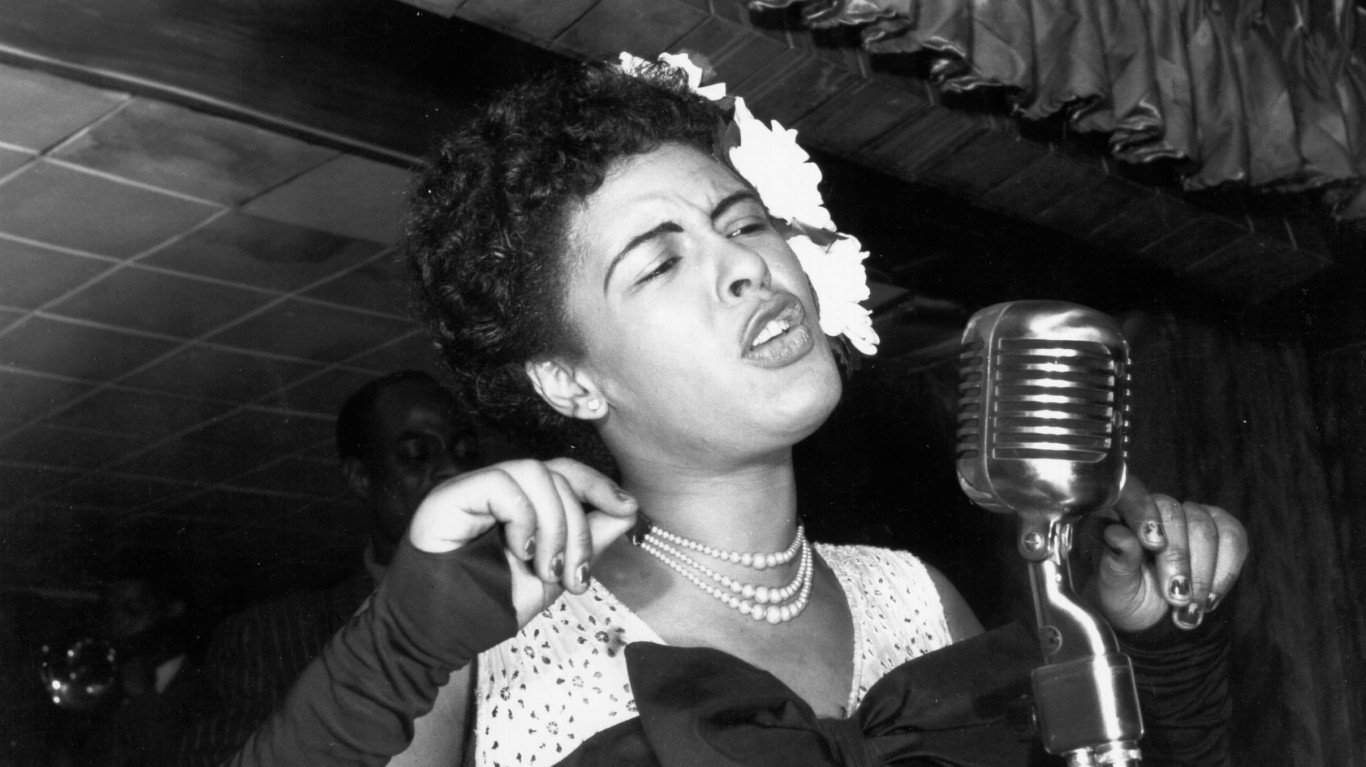Music has been called the purest art form. It also provides an emotional outlet for very real issues that plague our society. Some artists, however, take it a step further and instigate societal and perceptual change through the use of scandalous ideas and imagery. In this article, we will explore 10 of the most controversial songs in history.
To compile a list of the most controversial songs in history, 24/7 Tempo consulted a range of music and entertainment sites including UDiscoverMusic, Loudwire, and American Songwriter. Next, we selected songs with the biggest controversy and cultural impact. After that, we consulted sites like Biography to confirm specific details. (For music of a more patriotic nature, discover the most popular songs about America.)
Sex Pistols – God Save the Queen
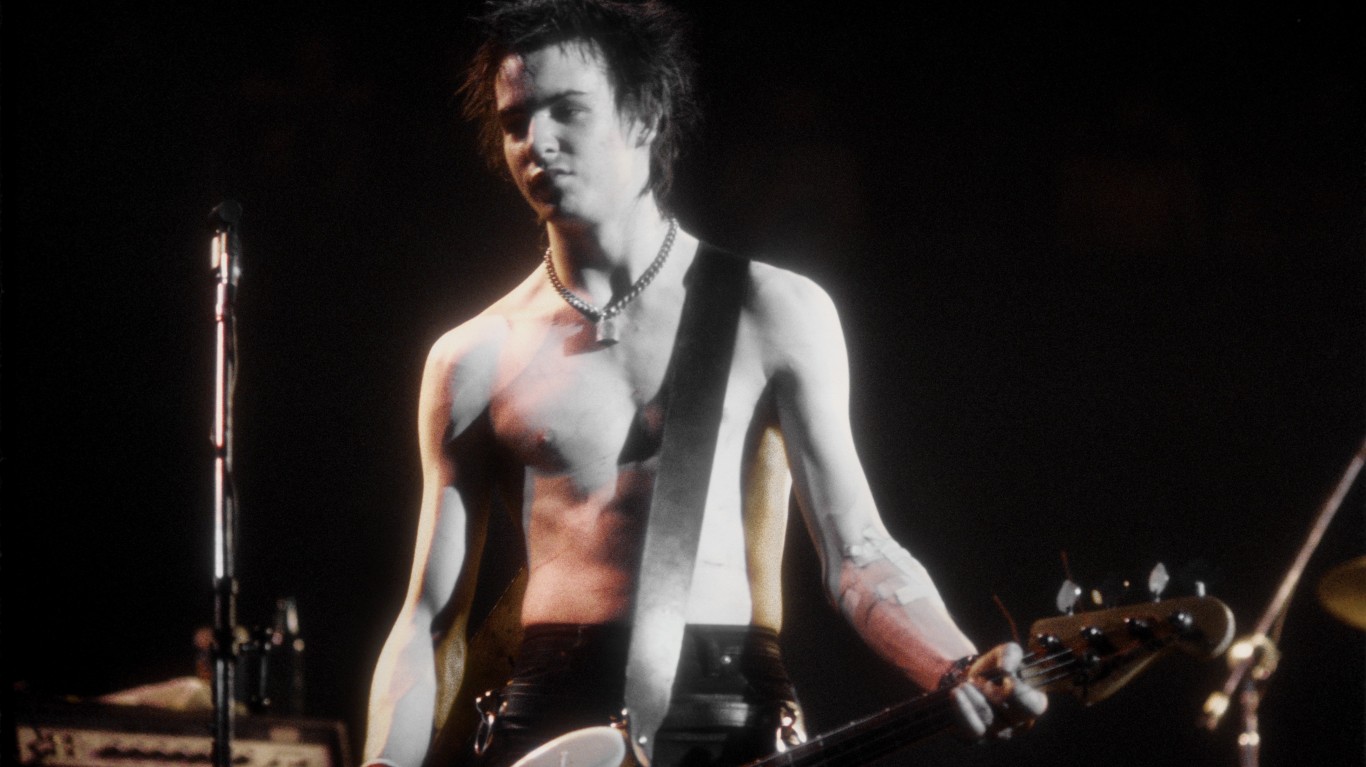
One of the most controversial songs in history is undoubtedly “God Save the Queen” by the Sex Pistols. Though it seems cheeky in the modern day, it’s hard to grasp just how scandalous this song was when first released. The year was 1977, and with the British Queen’s Silver Jubilee forthcoming, the Sex Pistols and their manager Malcolm McLaren seized the opportunity.
The release of “God Save the Queen” quickly got their new contract with A&M Records dissolved with most of the single pressings destroyed. Richard Branson stepped in, signing the band to his Virgin Records and timing the re-release of the song with the Queen’s anniversary. With lyrics criticizing her “fascist regime” and how she “ain’t no human being,” the BBC quickly banned the song.
Nevertheless, the song was a hit, selling some 200,000 copies in its first week. It didn’t reach number one, however, and the Sex Pistols crew felt slighted. In response, McLaren organized a wild gig with the Sex Pistols playing on a boat headed down the Thames River past the House of Parliament. Whether it got the Queen’s attention remains to be seen.
The Kinks – Lola
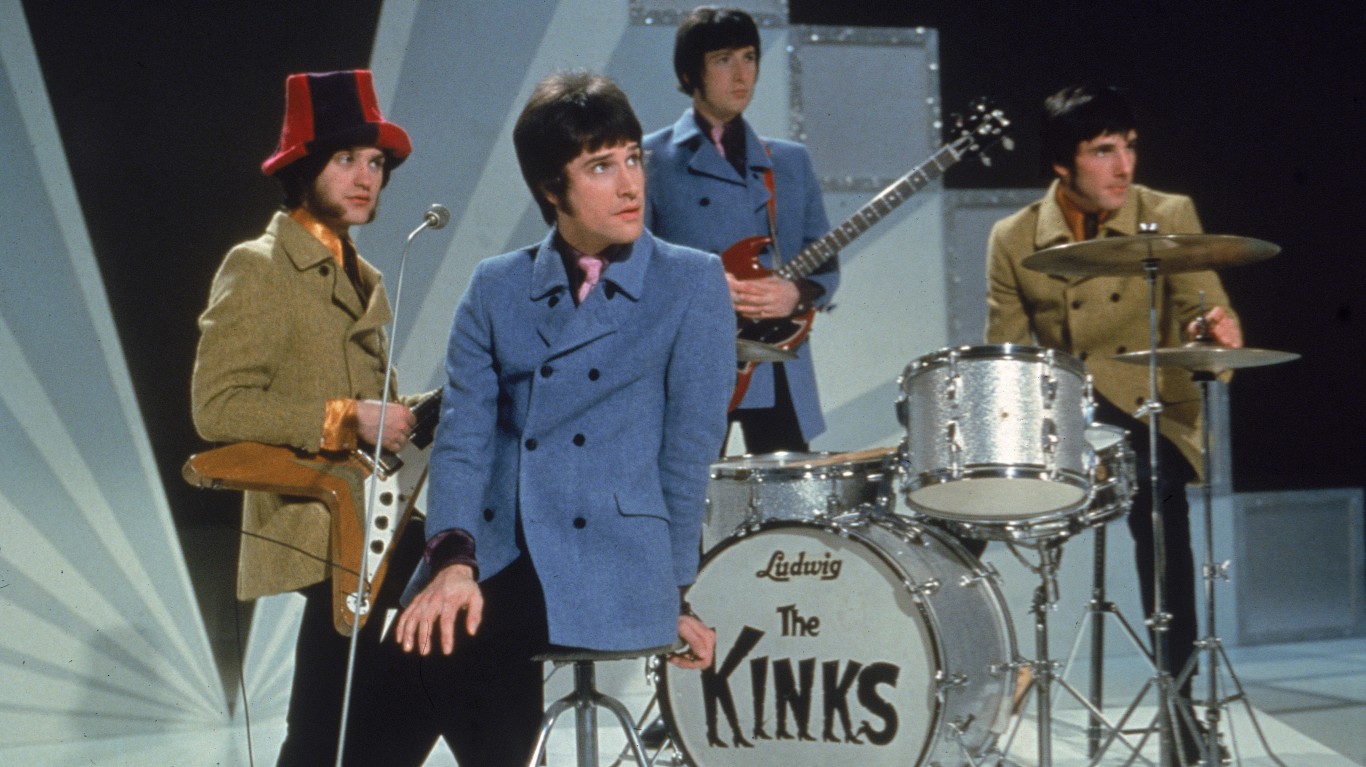
Another one of the most controversial songs in history is “Lola” by The Kinks. Ostensibly a song about a man falling in love with a trans woman or crossdresser, surprisingly, this narrative was not what made the song initially controversial. It was the line “Where they drink champagne and it tastes just like Coca-Cola,” that caused the BBC to ban it immediately. This was due to the station’s strict product placement rules.
When The Kinks found out about the slight, they were on tour in the United States. Eager to get the song on British radio, lead singer Ray Davies flew back home to England to re-record the offending lyric. He failed, however, and had to return to America before returning to England again to finally lock down the overdub.
In hindsight, it seems like a wise move. As soon as “Coca-Cola” was changed to the more general “cherry cola” the song was allowed back on the airwaves. Subsequently, “Lola” became one of the Kink’s biggest songs, lingering on the charts for a long time afterward.
The Kingsmen – Louie, Louie
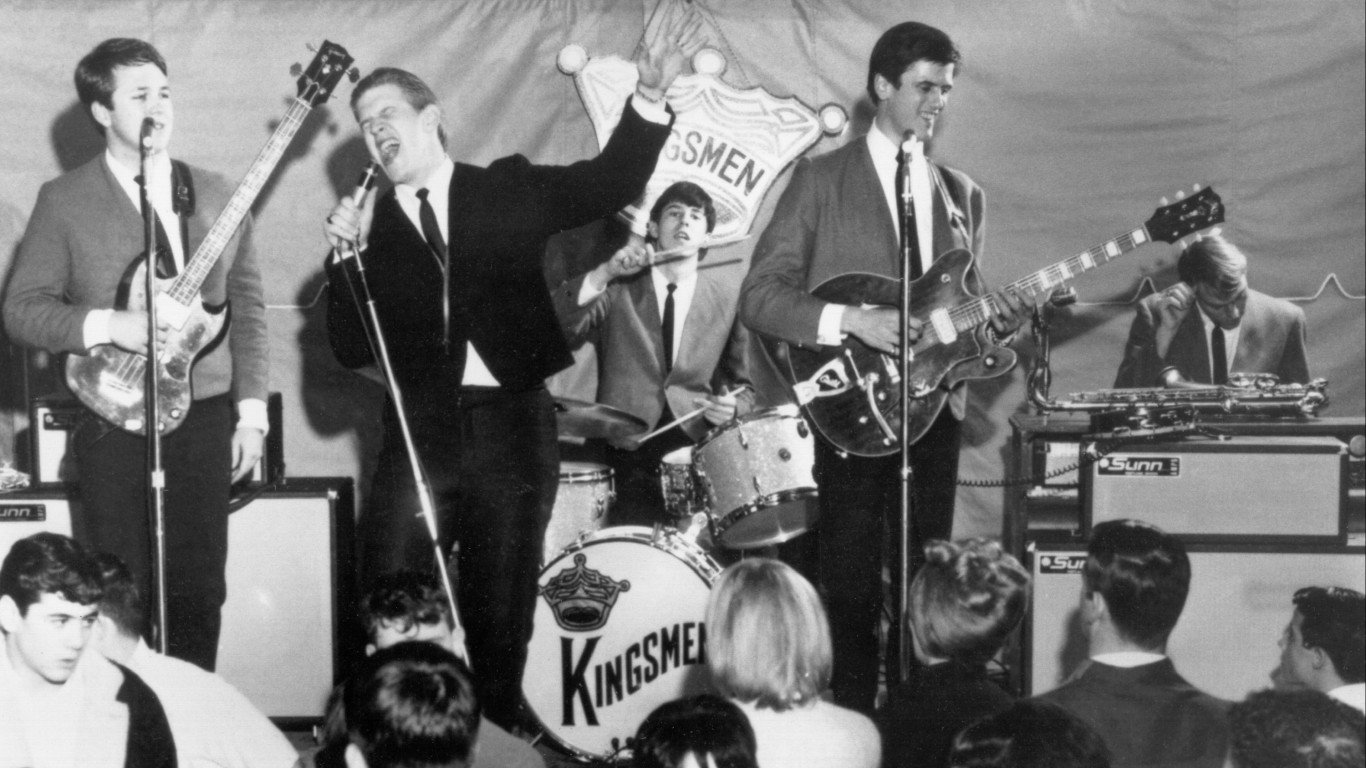
The song “Louie, Louie” has a strange and absurd history. Originally written by Richard Berry in 1955, the song entered the public imagination when a cover version was released by the Kingsmen in 1963. With its unique-for-the-time sound, heralding the later garage rock genre, the song purportedly tells the story of a sailor’s lament, homesick for the love of his wife.
This was hard to discern, however, due to lead singer Jack Ely’s primordial howl of a singing voice. At once manic and snarling, the lyrics were practically incomprehensible to the ear. The mystery of the words soon fed rumors that the lyrics were quite vulgar, if not patently obscene.
What followed was a true play in the theatre of the absurd. Everyone from the Indiana Governor to Attorney General Robert F. Kennedy got involved, calling for the song to be banned because they could hear the offensive lyrics themselves. Remarkably, even the FBI investigated the song, interviewing record executives and band members. Ultimately, this only gave “Louie, Louie” more publicity, sending it to the top of the charts. As for the offending lyrics in question, even a 31-month FBI investigation couldn’t decipher what words were sung.
(For other classic hits, discover the song that defined every summer since the 1950s.)
NWA – F__k Tha Police
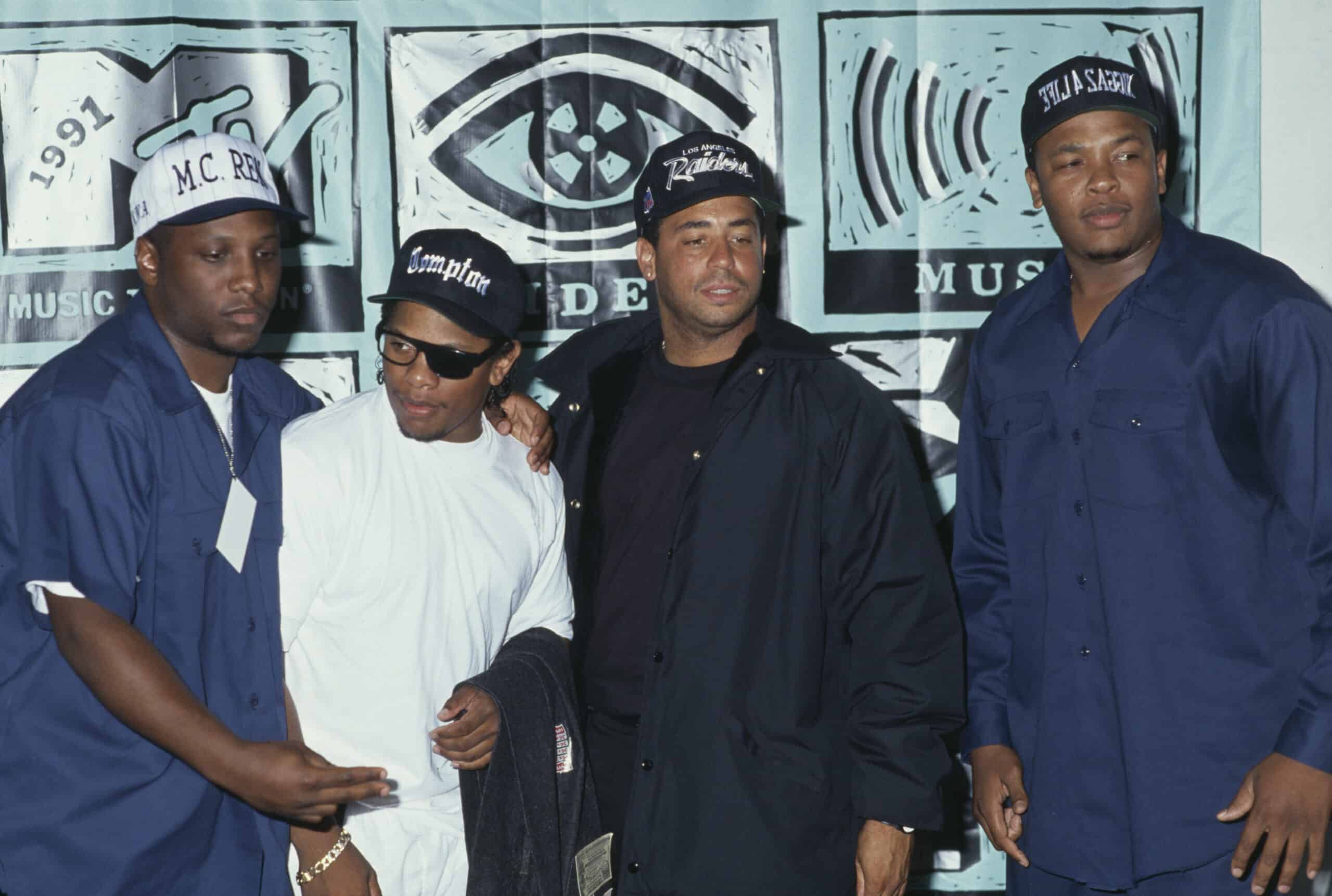
American hip hop group NWA (American rapper MC Ren, American rapper Eazy-E (1964-1995), American rapper DJ Yella, and American rapper Dr Dre) attend 8th Annual MTV Video Music Awards, held at the Universal Ampitheater in Universal City, California, 5th September 1991. (Photo by Vinnie Zuffante/Getty Images)
Another one of the most controversial songs in history is “F__k Tha Police” by NWA. The year was 1988, and the perception of police activity in Los Angeles was at an all-time low. Be it Operation Hammer, which saw over 50,000 people arrested for gang activity, or just the overall vibe of race relations in the city, things were tense. Then comes NWA with their blunt criticism of the police in “F__k Tha Police.”
Full of insults and, arguably, direct threats, “F__k Tha Police” also provided a sharp look at how African American men in Los Angeles were feeling about those tasked to serve and protect. As for the song’s origin, NWA member Ice Cube said “Our music was our only weapon. Nonviolent protest.”
Unsurprisingly, the song was instantly banned from playing on the radio. This, however, only increased its notoriety. What’s more, copies of the song’s lyrics were faxed to police forces in cities NWA was stopping in on tour. This only increased tension and made security at the gigs hard to come by. Even the FBI got involved, sending a letter to the group’s record company disapproving of the lyrics.
Frankie Goes To Hollywood – Relax
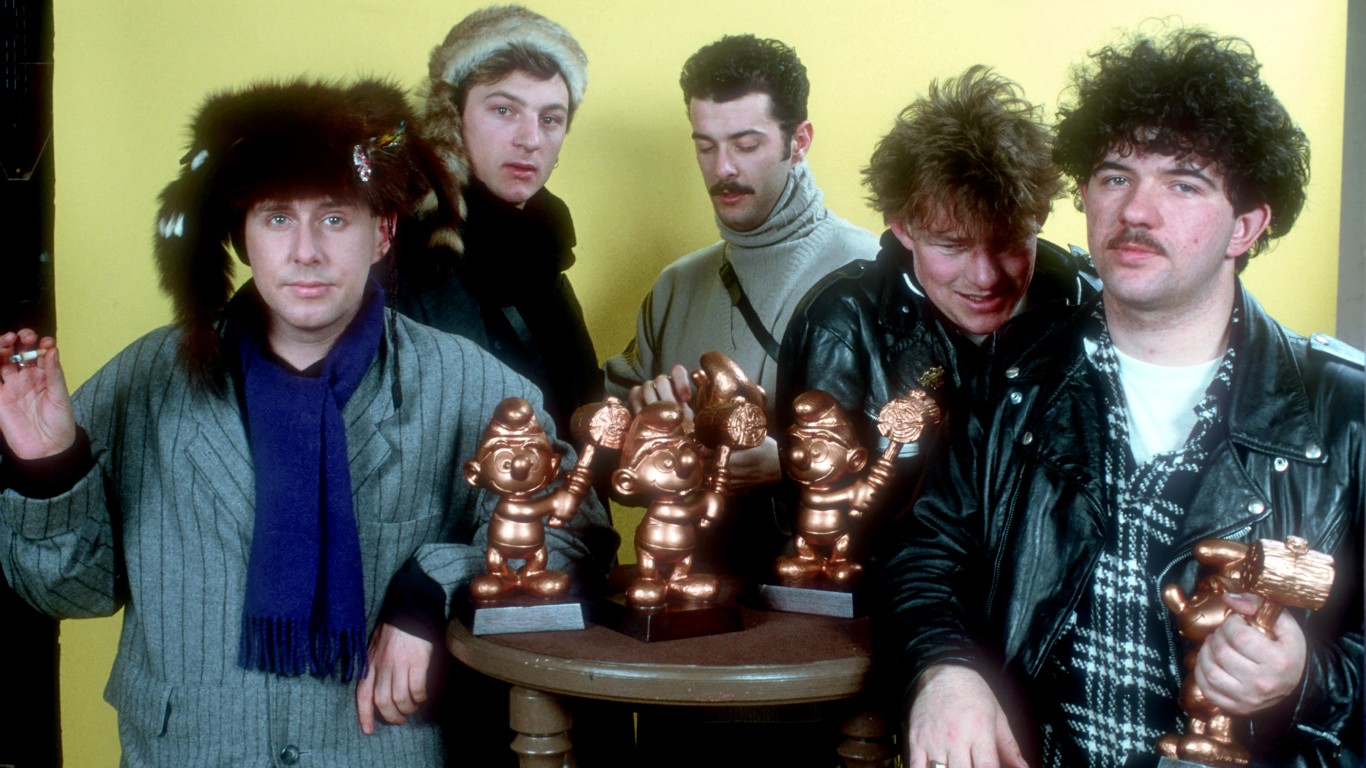
Though it has been featured in countless movies and television shows since its release, “Relax” by Frankie Goes to Hollywood was embroiled in controversy. It didn’t start that way, however. At first, it was just another infectious 80s pop song ambling up the music charts.
When it hit the Top 40 charts, the song was requisitely played by DJ Mike Read on BBC Radio 1 for his regular chart rundown. About halfway through the song, however, Read quickly shut off the song after realizing the intense innuendo of the lyrics. Though Read later claimed he had simply run out of time for the song, the band’s manager sensed an opportunity.
In response, he spread the rumor that the establishment had banned Frankie Goes to Hollywood’s song. This was a successful gambit, as the song quickly propelled to the number one spot on the charts where it sat for weeks. After that, Frankie Goes to Hollywood became a pop music phenomenon and the rest is history.
Ian Dury & The Blockheads – Spasticus Autisticus
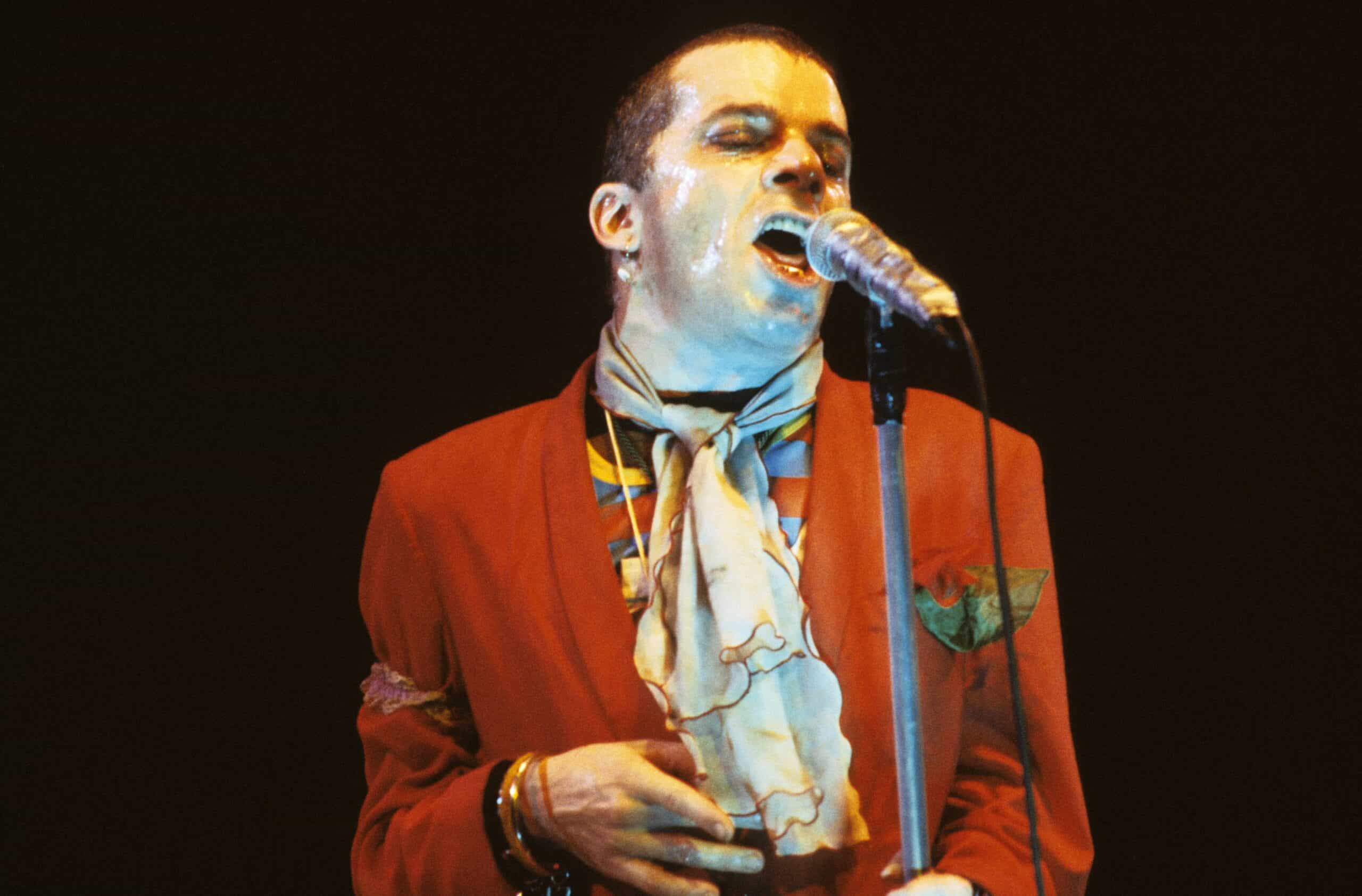
Another one of the most controversial songs in history is “Spasticus Autisticus” by Ian Dury & The Blockheads. The year was 1981, and the United Nations declared it would be the International Year Of Disabled Persons. Upon hearing this, Ian Drury felt patronized and penned “Spasticus Autisticus” in response.
He had good reason too, however. Drury had contracted the Polio virus at the age of seven years old. This left him disabled for life and at the mercy of cruel schoolchildren for most of his childhood. As such, “Spasticus Autisticus” was an unflinching, unpleasant look at the real experience of being disabled.
In response, both the BBC and local radio stations banned the song from the airwaves, deeming the lyrics to be offensive. Drury had the last laugh, however. Over the years, the song came to be seen for the stark but poignant piece of art it was. So much so, that it was eventually performed at the opening ceremony of the 2012 London Paralympic Games.
2 Live Crew – Me So Horny
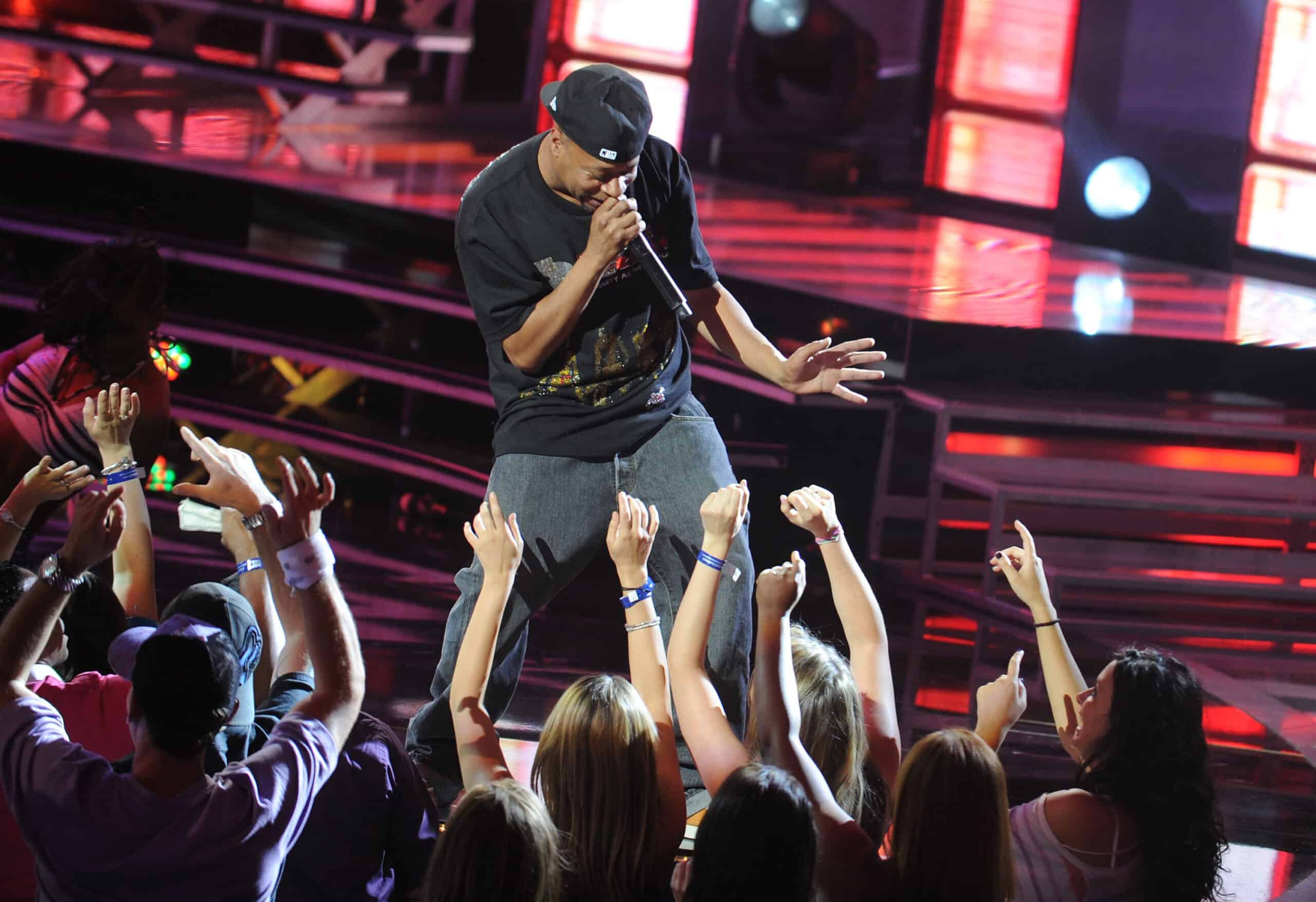
Another one of the most controversial songs in history is “Me So Horny” by 2 Live Crew. Having already gained a reputation for their raucous songs, 2 Live Crew exceeded expectations with the release of “Me So Horny.” Even with its heavily sexual lyrics, the song was an instant success.
Not only did it top the Rap music charts, it quickly reached number 26 on the Billboard Hot 100. Its success led to millions of albums being sold. Not everyone was happy with it, however. In June of 1990, Broward County Prosecutor Jack Thompson charged the group with obscenity. He even went so far as to persuade a Federal District Judge to declare it obscene.
As such, the group was prosecuted and even record store clerks who sold the album were arrested. During the trial, famed historian and academic Henry Louis Gates Jr. testified on behalf of 2 Live Crew. This helped the ruling be overturned on appeal. Nowadays, the song seems raunchy but not to the degree it did in the early ’90s.
Billie Holiday – Strange Fruit
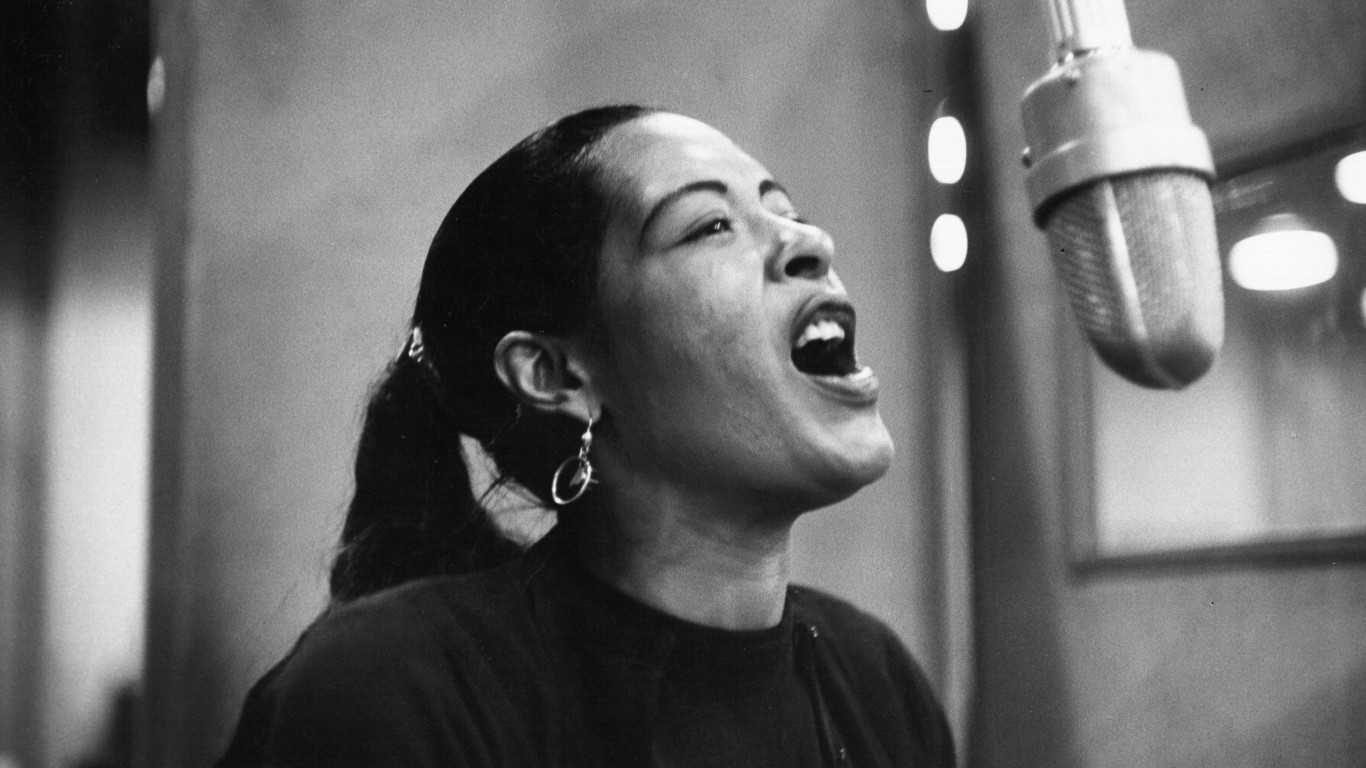
Another one of the most controversial songs in history is “Strange Fruit.” Initially written and composed by Abel Meeropol, the best-known version of the song was recorded by Billie Holiday in 1939. Drawn from a poem Meeropol had written, the song compares the lynchings of African Americans to strange fruit hanging on trees.
While Holiday initially feared performing the song, she persisted, usually placing it as the final song of the show and singing with all the venue lights down. When she took it to her recording label, however, the controversy began. For fear of upsetting southern retailers, Columbia as well as affiliate CBS refused to record the song.
Finally, Holiday sang it for the Commodore Record label head and it moved him to tears. Once the song was released, it became a sensation, selling millions of copies. It also became one of Holiday’s best-known songs. What’s more, some even credit “Strange Fruit” with kickstarting the burgeoning Civil Rights Movement in America.
Slayer – Angel of Death

One of the most controversial songs in history is “Angel of Death” by the notorious metal band Slayer. The opening track to the band’s album “Reign in Blood,” the song details the life and crimes of Nazi doctor Josef Mengele at the Auschwitz Concentration Camp. Written by guitarist Jeff Hanneman, the song speaks in detail about the gruesome human experiments Mengele conducted during World War II.
Even before its release, however, “Angel of Death” caused controversy. Slayer’s label Columbia Records refused to release it, so Geffen Records did instead. Upon public airing, the song was criticized by Holocaust survivors. Its perspective also earned the band accusations of fascism, racism, and nazism.
In reaction, band members dismissed the accusations, claiming that the evil of Dr. Mengele should be obvious and a simple retelling of what happened shouldn’t be cause for concern. Ultimately, the band continued to find success. Nowadays, “Angel of Death” is considered highly influential in the creation of Thrash and Speed Metal genres of music.
Loretta Lynn – The Pill
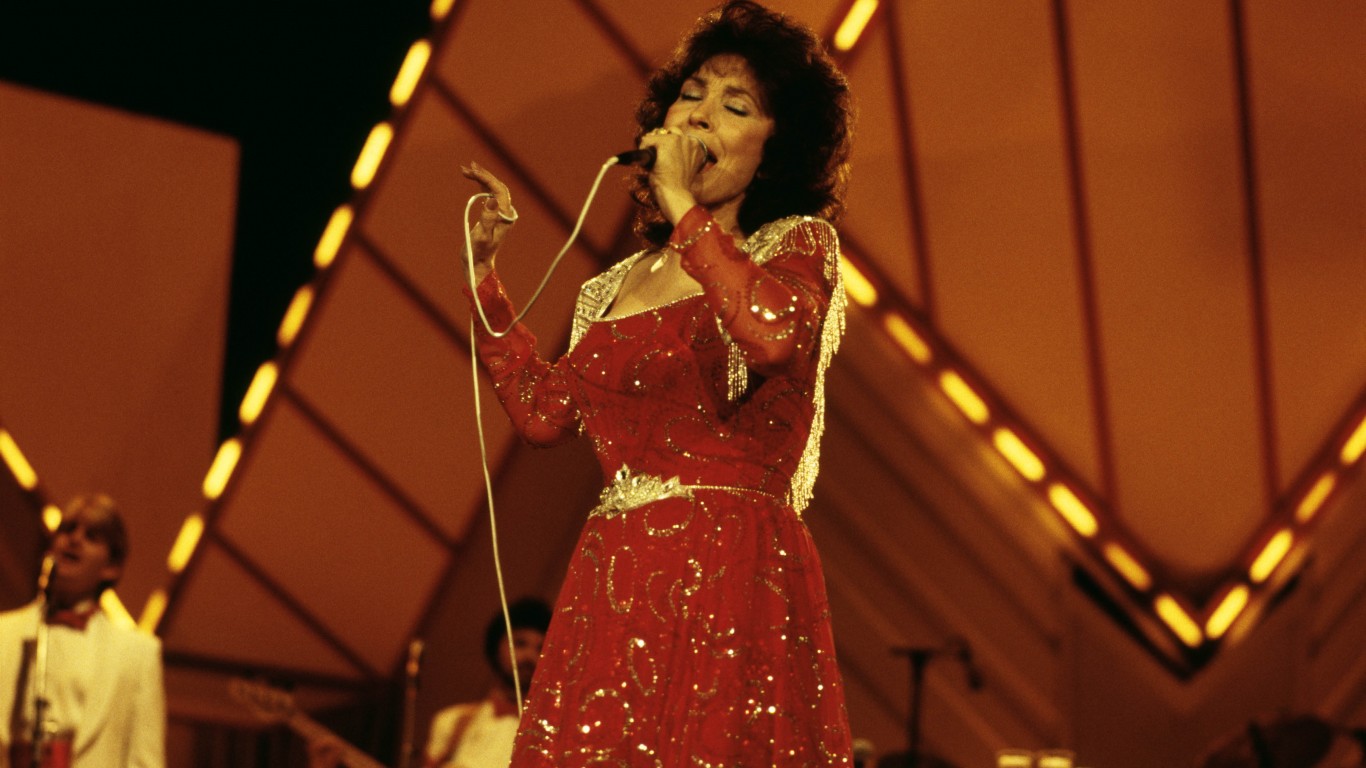
Another one of the most controversial songs in history is “The Pill” by Loretta Lynn. Already a mainstream pop and country success, Loretta Lynn co-penned a song about contraceptives. The lyrics describe a woman who finds freedom in using birth control after having continued children year after year.
Though sung from a relatively comic perspective, the song became embroiled in controversy. Upon release, more than a couple of country music stations refused to play it, citing its questionable content. The stations that would play it, however, helped the song reach number 70 on the Billboard Hot 100.
This was a break from character for the normally socially conservative Lynn. Besides reaching the Billboard Hot 100, the song reached number one in Canada. Ultimately, Lynn said in an interview that several rural doctors approached her, thanking her for bringing awareness to birth control methods. (For other popular tracks, discover the biggest one-hit wonders of the 21st century.)
